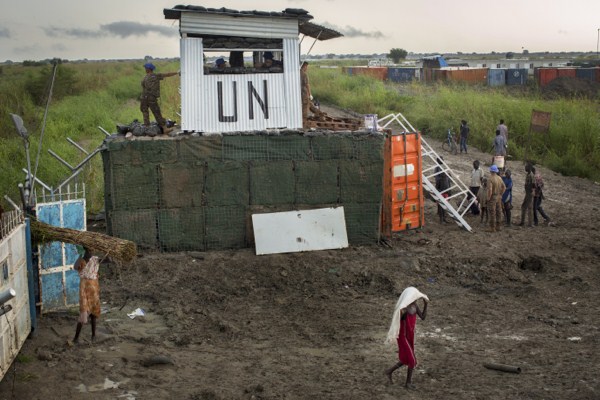JUBA, South Sudan—South Sudan is in crisis. Following the outbreak of a civil war almost a year ago, the country has been devastated by widespread violence that is both politically and ethnically motivated. The international community’s ability to stop the violence rests in large part on the shoulders of the United Nations Mission in South Sudan (UNMISS), a peacekeeping operation with a mandate to use force to protect civilians.
In order to protect people under the threat of violence, UNMISS needs to be perceived as neutral so that it does not become a target itself. The stakes could not be higher: Over 100,000 people are seeking shelter at its bases, and 1.3 million more have been displaced by violence across the country. But UNMISS currently has only 11,500 uniformed personnel deployed to protect them.
The mission—which dates to 2011, before the current violence in South Sudan—succeeded a previous U.N. mission deployed in 2005 to guarantee the peace accord that ended the South’s long-running civil war with Sudan. Having been repurposed after South Sudan’s secession in 2011, it was repurposed again in May to prioritize the protection of civilians and help implement a cessation of hostilities agreement in the current conflict.

